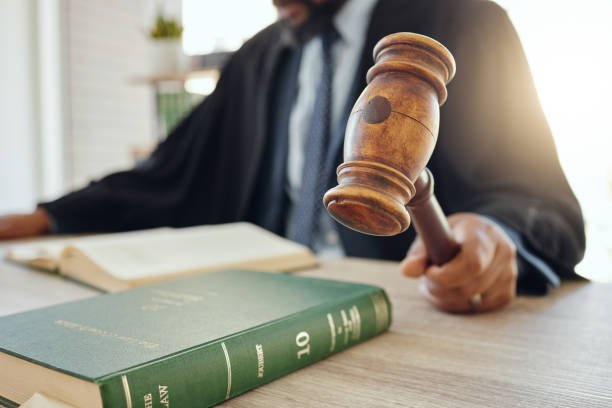In the South African legal system, the hierarchy of courts plays a crucial role in upholding the principles of justice, ensuring the rule of law, and protecting the rights and liberties of its citizens. The country’s judicial structure consists of various courts with distinct jurisdictions, powers, and responsibilities. Among these courts, the Constitutional Court, the Supreme Court of Appeal, the High Courts, and the Magistrates’ Courts hold paramount importance in matters concerning constitutional jurisdiction.
In this essay, we will define, explain, apply, contrast, and evaluate the hierarchy of the courts in South Africa, focusing particularly on the composition, powers, responsibilities, and limits of the Constitutional Court, the Supreme Court of Appeal, the High Courts, and the Magistrates’ Courts regarding constitutional matters.
The Constitutional Court stands at the apex of the judicial hierarchy in South Africa. Established under the post-apartheid Constitution, its primary function is to safeguard and interpret the Constitution. Comprising of the Chief Justice and ten other judges, the Constitutional Court has exclusive jurisdiction over constitutional matters and plays a vital role in protecting fundamental rights, resolving constitutional disputes, and ensuring the constitutionality of legislation and government actions.
Contrasting the Constitutional Court, the Supreme Court of Appeal holds the second-highest position in the judicial hierarchy. It primarily deals with appeals from lower courts, including the High Courts and certain specialized courts. The Supreme Court of Appeal consists of a President and other judges, appointed based on their legal expertise and experience. While it does not focus exclusively on constitutional matters, it still plays a significant role in shaping the interpretation and application of constitutional principles through its appellate jurisdiction.
Beneath the Supreme Court of Appeal are the High Courts, which are established in various provinces across the country. These courts exercise original jurisdiction and handle both civil and criminal matters. High Court judges are appointed based on their legal expertise, and they possess wide powers to interpret and apply the law. High Courts play a crucial role in protecting constitutional rights and ensuring the proper administration of justice.
Lastly, the Magistrates’ Courts represent the lowest level of the hierarchy. These courts handle less complex matters, including minor criminal offenses and civil disputes involving limited amounts of money. Magistrates’ Courts are presided over by magistrates who possess the authority to hear cases within their jurisdiction and make judgments accordingly. While their constitutional jurisdiction is relatively limited, they still play a vital role in providing accessible and efficient justice to the public.
Video: Reporting the courts: Understanding the hierarchy of the SA court system
In evaluating the hierarchy of the courts and their constitutional jurisdiction in South Africa, it is important to consider the effectiveness of these courts in upholding constitutional principles, protecting individual rights, and ensuring the proper administration of justice. We will explore the strengths and limitations of each court in terms of its composition, powers, responsibilities, and the extent to which they contribute to the overall protection of constitutional rights and the rule of law.
By delving into the intricacies of the Constitutional Court, the Supreme Court of Appeal, the High Courts, and the Magistrates’ Courts, we can gain a comprehensive understanding of the South African judicial system’s structure, the roles and functions of each court, and their impact on constitutional jurisdiction. Through this exploration, we can appreciate the significance of a well-functioning court hierarchy in upholding democracy, protecting human rights, and fostering a just and inclusive society.
Highlights:
The hierarchy of courts in South Africa consists of various levels, each with its own jurisdiction and responsibilities. Here is the general hierarchy of courts in South Africa:
- Constitutional Court:
- The highest court in South Africa.
- Its main function is to protect and interpret the Constitution.
- Has the power to make final decisions on constitutional matters.
- Consists of the Chief Justice and other judges appointed by the President.
- Supreme Court of Appeal:
- The second-highest court in South Africa.
- Hears appeals from lower courts, including high courts and other specialized courts.
- Consists of a President and other judges appointed by the President.
- High Courts:
- Each province in South Africa has a High Court.
- Divided into divisions that hear cases in specific regions.
- The High Court has original jurisdiction in most civil and criminal matters.
- Appeals from the High Court go to the Supreme Court of Appeal.
- Magistrates’ Courts:
- There are numerous Magistrates’ Courts throughout South Africa.
- Handles a wide range of criminal and civil matters, including lower-level criminal offenses and civil disputes of lesser value.
- Decisions made in Magistrates’ Courts can be appealed to the High Court.
- Specialized Courts and Tribunals:
- South Africa has several specialized courts and tribunals that deal with specific areas of law.
- Examples include the Labour Court (dealing with labor-related disputes), the Land Claims Court (addressing land restitution matters), and the Competition Appeal Court (handling competition law cases).
- Appeals from specialized courts usually go to the Supreme Court of Appeal.
The Hierarchy of South African Courts and Structures
The Constitutional Court
In the democratic nation of South Africa, the Constitutional Court plays a vital role in upholding the principles of justice, protecting individual rights, and safeguarding the integrity of the Constitution. This Section looks into the significance of the Constitutional Court, outlines the hierarchy of the courts, and explores the composition, powers, responsibilities, and limits of the court within the South African judicial system.
Defining the Constitutional Court:
The Constitutional Court, established in 1994, is the highest court in South Africa when it comes to constitutional matters. It serves as the guardian and interpreter of the Constitution, ensuring its supremacy and the protection of fundamental rights. The court is entrusted with the responsibility of settling constitutional disputes, reviewing legislation for its constitutionality, and making final decisions on matters relating to human rights.
Hierarchy of the Courts:
South Africa has a hierarchical judicial system, comprising several levels of courts. At the apex stands the Constitutional Court, followed by the Supreme Court of Appeal, High Courts, and Magistrate’s Courts. Each level has its own jurisdiction and areas of expertise. The Constitutional Court has the ultimate authority in interpreting the Constitution and its decisions are binding on all lower courts.
Composition of the Constitutional Court:
The Constitutional Court consists of a chief justice, who is the head of the judiciary, and ten other judges. These judges are appointed by the President of South Africa on the recommendation of the Judicial Service Commission, which is composed of representatives from the judiciary, legal profession, and Parliament. The judges are chosen based on their legal acumen, expertise, and commitment to upholding the Constitution.
Powers and Responsibilities:
The Constitutional Court holds extensive powers to ensure the protection and promotion of constitutional rights. It has the authority to hear cases related to constitutional matters, including the interpretation, enforcement, and validity of legislation. The court also has the power to declare legislation invalid if it violates the Constitution. Additionally, it has the power to develop the common law to align with the Constitution and to protect human rights.
Limitations and Constraints:
While the Constitutional Court enjoys considerable powers, it is not omnipotent. The court’s jurisdiction is limited to constitutional matters, and it cannot address every legal issue that comes before it. It requires cases to go through lower courts before they can be considered by the Constitutional Court. Additionally, the court cannot initiate cases on its own; it can only decide cases brought before it.
Contrasting with Other Courts:
The Constitutional Court stands apart from other courts in South Africa due to its exclusive focus on constitutional matters. Unlike other courts, its primary objective is to protect and enforce the Constitution and ensure that the legislative and executive branches adhere to constitutional principles. Other courts, on the other hand, have broader jurisdiction and handle a wide range of civil, criminal, and administrative matters.
Evaluation of the Constitutional Court:
The Constitutional Court of South Africa has proven to be an essential pillar of democracy and the rule of law. Its independence, expertise, and commitment to upholding the Constitution have allowed it to make groundbreaking decisions that have shaped the country’s legal landscape. The court has played a crucial role in promoting equality, protecting human rights, and fostering social justice.
The Constitutional Court of South Africa holds a significant position within the country’s judicial system. It ensures the supremacy of the Constitution, protects individual rights, and promotes justice. With its composition of skilled judges and the power to interpret and enforce the Constitution, the Constitutional Court continues to shape South Africa’s legal framework and serves as a beacon of justice for its citizens.
The Supreme Court of Appeal
In South Africa, the judicial system plays a crucial role in upholding the rule of law and safeguarding constitutional rights. At the apex of the judicial hierarchy lies the Supreme Court of Appeal (SCA), which serves as the highest court in non-constitutional matters. In this section, we define, explain, apply, contrast, and evaluate the hierarchy of the courts and delve into the composition, powers, responsibilities, and limits of the Supreme Court of Appeal in South Africa.
Hierarchy of Courts in South Africa: The judicial system in South Africa operates on a hierarchical structure, with each court having its own jurisdiction and powers. The hierarchy consists of the following courts:
- Constitutional Court: The highest court in South Africa, responsible for interpreting and upholding the Constitution. It has the final say on matters involving constitutional issues.
- Supreme Court of Appeal: Positioned below the Constitutional Court, it is the highest court for non-constitutional matters, primarily hearing appeals from lower courts. The SCA ensures consistent interpretation and application of the law.
- High Court: Each province in South Africa has a High Court, which has jurisdiction over both criminal and civil matters within its designated area. The High Court hears cases at first instance and serves as an appellate court for decisions of lower courts.
- Magistrate’s Court: These courts are spread throughout the country and handle less complex criminal and civil matters. They have limited jurisdiction but are vital in providing access to justice at a local level.
Composition of the Supreme Court of Appeal:
The Supreme Court of Appeal consists of a president, deputy president, and a number of judges. The president and deputy president are appointed from among the judges of the court and are responsible for the administration and functioning of the SCA. The judges are appointed by the President of South Africa on the advice of the Judicial Service Commission. They are highly experienced and knowledgeable individuals with a wealth of legal expertise.
Powers, Responsibilities, and Limits of the Supreme Court of Appeal:
- Appellate Jurisdiction: The SCA has the power to hear and decide on appeals from the High Court, Magistrate’s Court, and other tribunals. It reviews judgments and orders of these lower courts to ensure correct application and interpretation of the law.
- Binding Precedent: The decisions of the SCA are binding on lower courts and create precedent, which contributes to the development and consistency of the law. However, the Constitutional Court has the authority to overrule or modify decisions of the SCA.
- Interpretation of Legislation: The SCA plays a vital role in interpreting legislation and clarifying its meaning. It ensures uniformity in legal interpretation, promoting legal certainty and predictability.
- Constitutional Matters: Although the SCA primarily deals with non-constitutional matters, it may still play a role in interpreting constitutional issues when they arise incidentally in non-constitutional cases.
- Judicial Review: The SCA has the power to review administrative decisions to ensure they are lawful, reasonable, and procedurally fair. This serves as a safeguard against abuse of power by administrative bodies.
Evaluation of the Supreme Court of Appeal:
The SCA has contributed significantly to the development and improvement of the South African legal system. Its emphasis on uniformity, consistency, and the fair application of the law has led to enhanced legal certainty. The court’s judgments serve as valuable guidance for lower courts and legal practitioners.
However, some criticisms have been raised regarding the SCA. Some argue that its composition lacks diversity, with limited representation of women and historically disadvantaged communities. Efforts are being made to address this concern and promote inclusivity within the judiciary.
The High Courts
The South African judicial system is composed of a hierarchical structure of courts that serve as pillars of justice in the country. At the apex of this structure are the Constitutional Court and the Supreme Court of Appeal, while beneath them lies a network of High Courts. Below, we look into the definition, explanation, application, contrast, and evaluation of South Africa’s High Courts, focusing on their composition, powers, responsibilities, and limits.
Defining the High Courts:
The High Courts in South Africa represent the second-highest tier of the judicial hierarchy, subordinate only to the Constitutional Court. These courts are established in various provinces and divisions across the country. The number and locations of the High Courts are determined by legislation, ensuring that there is at least one High Court in each province.
Composition of the High Courts:
Each High Court is made up of judges appointed by the President of South Africa, acting on the advice of the Judicial Service Commission. The judges, known as Judges of the High Court, are highly qualified legal professionals with extensive experience. The total number of judges in the High Courts varies depending on the caseload and population of each province.
Powers and Responsibilities of the High Courts:
The High Courts hold significant powers and responsibilities within the South African legal system. They have jurisdiction to hear a wide range of civil and criminal matters, including appeals from lower courts and cases involving constitutional issues. High Courts have the authority to review administrative actions and decisions made by government bodies and tribunals.
One of the essential functions of the High Courts is to ensure the protection and enforcement of fundamental rights and freedoms enshrined in the Constitution. They play a crucial role in upholding the rule of law, interpreting legislation, and setting legal precedents through their judgments. The High Courts also handle matters such as divorce, disputes over property, contractual claims, and issues related to wills and estates.
Contrasting the High Courts with Other Judicial Bodies:
While the High Courts possess significant powers, it is important to distinguish them from other key judicial bodies in South Africa’s hierarchy. The Constitutional Court, as the highest court in the land, has the authority to interpret the Constitution, declare laws unconstitutional, and protect fundamental rights. The Supreme Court of Appeal primarily deals with appeals from the High Courts and specialized courts, focusing on questions of law.
Unlike lower courts, the High Courts have inherent jurisdiction, which means they can hear any matter brought before them unless expressly excluded by law. Their decisions are binding on lower courts but can be appealed to higher courts.
Limits on the High Courts:
While the High Courts wield substantial powers, they also have certain limitations. For instance, their jurisdiction may be limited by legislation or by the nature of the case. Certain matters, such as criminal cases involving serious offenses, must be heard by the High Court, while others are within the jurisdiction of lower courts.
Moreover, the High Courts are not immune to criticism or legal challenges. Their judgments can be appealed to higher courts, and their decisions may be subject to review for errors of law or procedural irregularities. Judicial misconduct or bias can also be addressed through the appropriate channels.
Evaluation of the High Courts:
The High Courts in South Africa serve as vital institutions for the administration of justice. Their composition of experienced judges, extensive jurisdiction, and the power to uphold constitutional rights contribute to the robustness of the legal system. Their judgments have a significant impact on the development and interpretation of South African law.
However, challenges exist in terms of case backlogs and delays in the justice system. Ensuring timely and efficient resolution of cases should remain a priority. Additionally, efforts should be made to enhance public awareness and accessibility to the High Courts, promoting transparency and public trust in the judicial process
The Magistrates’ Courts
The South African legal system is built upon a hierarchical structure of courts that ensures the efficient administration of justice. The Magistrates’ Courts form an integral part of this structure and play a crucial role in adjudicating various civil and criminal matters. In this section, we will define, explain, apply, contrast, and evaluate the hierarchy of the courts, as well as the composition, powers, responsibilities, and limits of the Magistrates’ Courts in South Africa.
Definition and Explanation:
The Magistrates’ Courts in South Africa are lower courts that have jurisdiction over a wide range of civil and criminal cases. They are established in terms of the Magistrates’ Courts Act, 1944, and are presided over by magistrates who are legally qualified judicial officers. Magistrates’ Courts are decentralized, allowing for greater accessibility to justice throughout the country.
Hierarchy of Courts:
South Africa’s court system is composed of various tiers, each with its own jurisdiction and authority. At the apex of the hierarchy is the Constitutional Court, which has the final authority to interpret the Constitution and protect fundamental rights. Below the Constitutional Court, the Supreme Court of Appeal acts as the highest appellate court for non-constitutional matters.
Beneath the Supreme Court of Appeal, there are High Courts situated in different provinces, which have jurisdiction over major civil and criminal cases. These courts also act as appellate courts for cases originating in the Magistrates’ Courts.
Finally, at the lower end of the hierarchy, we find the Magistrates’ Courts. They are spread throughout the country and are divided into regional divisions and district divisions, depending on the size and population of the areas they serve.
Composition:
Magistrates’ Courts are presided over by magistrates who are appointed by the Minister of Justice and Constitutional Development. Magistrates fall into two categories: Regional Magistrates and District Magistrates. Regional Magistrates have wider jurisdiction and deal with more complex cases, while District Magistrates handle less serious matters.
Magistrates are appointed from a pool of legally qualified individuals and are required to possess the necessary legal knowledge and skills to preside over cases in a fair and impartial manner.
Powers and Responsibilities:
Magistrates’ Courts have both civil and criminal jurisdiction. In civil matters, they handle disputes involving amounts below a certain threshold (determined by legislation), contractual disputes, family law matters, and certain types of claims.
In criminal matters, the Magistrates’ Courts have the authority to hear and determine less serious criminal offenses. They can impose sentences such as fines, community service, correctional supervision, and imprisonment for up to certain prescribed maximum periods, depending on the nature and severity of the offense.
Additionally, Magistrates’ Courts play a vital role in the administration of justice by conducting preliminary inquiries and issuing search warrants, arrest warrants, and other court orders necessary for the proper functioning of the legal system.
Limits and Contrasts:
While Magistrates’ Courts handle a significant number of cases, they do have certain limitations. They are not empowered to hear cases involving serious offenses, such as murder, rape, or high-value commercial disputes. Such matters fall within the jurisdiction of the High Courts.
Another notable contrast is that decisions made by Magistrates’ Courts can be appealed to the High Courts, which act as the first level of appeal. The decisions of the High Courts, in turn, can be appealed to the Supreme Court of Appeal, and in some cases, to the Constitutional Court.
Evaluation:
The Magistrates’ Courts in South Africa are crucial in ensuring access to justice for a large number of people. By decentralizing the judicial system and establishing Magistrates’ Courts throughout the country, individuals are provided with a local forum to resolve their legal disputes. This helps to reduce the burden on higher courts and ensures a more efficient and accessible justice system.





